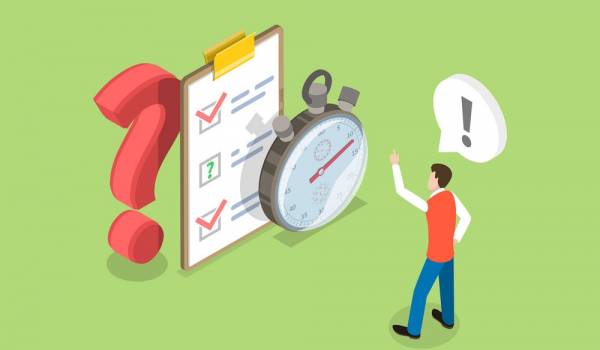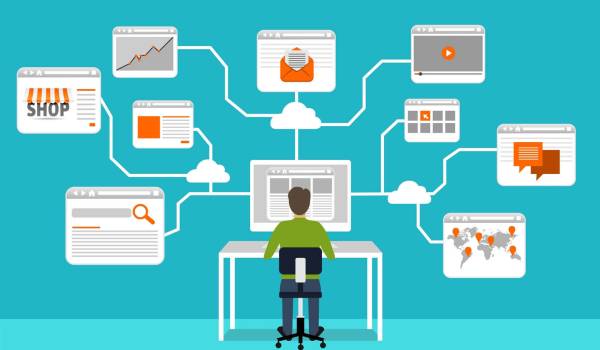
Sales Excellence 1: Bite-Sized Sales & Marketing Information
This dynamic program offers succinct and engaging modules designed to enhance your knowledge and skills in the critical areas of sales and marketing within the context of hospitality management.
The course leverages short, focused content segments, including videos, quizzes, and interactive activities, making it convenient to access, even in your busy schedule. It's a self-paced journey that enables you to learn at your own convenience.
"Sales Excellence: Bite-Sized Sales & Marketing" is not just a course, it's a pathway to success in the dynamic and customer-centric hospitality industry. Whether you're a seasoned professional or just starting your career, this microlearning program will equip you with the skills and knowledge you need to excel in the competitive world of hospitality sales and marketing.
Module 1: Introduction to Hospitality Sales & Marketing
- Understanding the role of sales and marketing in the hospitality industry
- The impact of effective sales and marketing on a hospitality business
- Key industry trends and challenges
Module 2: Customer Behavior and Needs
- Analyzing guest behavior and preferences
- Identifying customer segments and personas
- Addressing the unique needs of different guest groups
Module 3: Crafting a Compelling Brand Story
- The importance of a strong brand in hospitality
- Telling your hotel's unique story
- The role of branding in marketing strategy
Module 4: Digital Marketing Essentials
- Navigating the digital landscape in hospitality
- Website optimization and user experience
- Social media marketing and online reputation management
Module 5: Email Marketing and Guest Engagement
- Building and maintaining a strong email list
- Creating effective email campaigns
- Engaging guests through personalized communication
Module 6: Revenue Management and Pricing Strategies
- The art of pricing in hospitality
- Implementing dynamic pricing and yield management
- Balancing occupancy and profitability
Module 7: Online Travel Agencies (OTAs) and Distribution Channels
- The pros and cons of working with OTAs
- Maximizing your hotel's visibility on online platforms
- Managing relationships with different distribution channels
Module 8: Sales Techniques and Negotiation Skills
- Selling room blocks and event spaces
- Effective negotiation strategies
- Building and maintaining corporate partnerships
Module 9: Data Analytics and Performance Metrics
- The role of data in sales and marketing decisions
- Key performance indicators (KPIs) for hospitality
- Using data to refine your strategies
Module 10: Guest Reviews and Reputation Management
- The impact of online reviews on bookings
- Strategies for managing and improving your online reputation
- Turning negative reviews into opportunities for growth
Module 11: Sustainable Marketing Practices in Hospitality
- Implementing sustainable and responsible tourism practices
- The marketing potential of eco-friendly initiatives
- Communicating your hotel's commitment to sustainability
Module 12: Future Trends in Hospitality Sales and Marketing
- Emerging trends in the hospitality industry
- Preparing for the future of sales and marketing
- Innovations and disruptive technologies to watch out for
Sales Excellence 1: Bite-Sized Sales & Marketing Amenities
- Audio Equipment
Sales Excellence 1: Bite-Sized Sales & Marketing FAQ
What is 'Selling Excellence: Bite-Sized Sales & Marketing'?
'Sales Excellence: Bite-Sized Sales & Marketing' is a blended course designed for professionals in the hospitality industry. It offers concise and engaging modules that focus on critical areas of sales and marketing within the context of hospitality management.
What can I expect from this course?
You can expect to gain valuable insights and tools to excel in the competitive world of hospitality sales and marketing. The course covers a range of topics, from understanding guest behavior and needs to mastering digital marketing, email marketing, revenue management, and more.
How is the course structured?
The course consists of 12 modules, each focusing on specific aspects of hospitality sales and marketing. Each module is designed to be bite-sized and engaging, incorporating various content formats such as videos, infographics, quizzes, and interactive activities.
Who is this course for?
This course is suitable for both seasoned hospitality professionals and those who are just beginning their careers in the industry. It provides essential knowledge and skills for anyone looking to excel in the competitive world of hospitality sales and marketing.
Can I access the course at my own pace?
Yes, this course is self-paced, allowing you to access and complete the modules at your convenience. This flexibility accommodates your busy schedule.
How can I reinforce my learning throughout the course?
Each module includes assessments and quizzes to help reinforce your understanding of the content. Practical examples and case studies specific to the hospitality industry are also integrated into the course to illustrate concepts and strategies.
What specific topics are covered in each module?
Here is a brief overview of the topics covered in each module:
- Module 1: Introduction to Hospitality Sales & Marketing
- Module 2: Customer Behavior and Needs
- Module 3: Crafting a Compelling Brand Story
- Module 4: Digital Marketing Essentials
- Module 5: Email Marketing and Guest Engagement
- Module 6: Revenue Management and Pricing Strategies
- Module 7: Online Travel Agencies (OTAs) and Distribution Channels
- Module 8: Sales Techniques and Negotiation Skills
- Module 9: Data Analytics and Performance Metrics
- Module 10: Guest Reviews and Reputation Management
- Module 11: Sustainable Marketing Practices in Hospitality
- Module 12: Future Trends in Hospitality Sales and Marketing
These modules cover a wide range of critical aspects in hospitality sales and marketing.
Is there a certificate upon completion?
Yes, the course offers a certificate of completion, which can be earned after successfully finishing the modules and assessments. The certificate can be a valuable addition to your professional credentials.
Is there a specific order in which I should complete the modules, or can I choose the order that suits me?
You have the flexibility to choose the order in which you complete the modules. While there is a suggested sequence for the modules, you can select the ones that align with your interests or current needs. This flexibility allows you to focus on areas that are most relevant to your role in the hospitality industry.
What is the expected time commitment for each module?
The time required to complete each module may vary based on your familiarity with the topic and your learning pace. On average, each module can be completed in about 1 to 2 hours. However, you can progress at your own speed, pausing and resuming as needed to fit your schedule.
Is there any additional support or guidance available for learners during the course?
While the course is primarily self-paced, there may be opportunities for learners to access additional support or resources. This could include discussion forums, email support for questions, or supplementary materials. The specifics may vary depending on the course provider or platform.
Can I access the course on mobile devices, such as smartphones or tablets?
Yes, the course is designed to be accessible on a variety of devices, including smartphones and tablets. This mobility allows you to learn on the go, making it even more convenient to integrate learning into your daily routine.
Will I have access to the course material after I complete it?
The availability of course materials after completion may vary depending on the course duration. It's a good practice to check the course details or contact the course provider for specific information regarding post-completion access to materials.
Sales Excellence 1: Bite-Sized Sales & Marketing Curriculum
Module 1: Introduction to Hospitality Sales & Marketing
In this module, you will develop a fundamental understanding of the essential concepts in sales and marketing within the hospitality industry.
You will gain insights into the role of sales and marketing, the profound impact of effective strategies on hospitality businesses, and an overview of key industry trends and challenges.
Content:
1.1 Understanding the Role of Sales and Marketing in the Hospitality Industry
- Defining the functions and significance of sales and marketing in hospitality
- Differentiating between sales and marketing activities
- Exploring the interplay between sales and marketing in delivering guest satisfaction
1.2 The Impact of Effective Sales and Marketing on a Hospitality Business
- Analyzing the positive outcomes of successful sales and marketing strategies
- Enhancing revenue, guest satisfaction, and brand reputation
- How effective sales and marketing can drive profitability and competitiveness
1.3 Key Industry Trends and Challenges
- Identifying the latest trends shaping the hospitality industry
- Recognizing the challenges faced by hospitality businesses in a dynamic landscape
- Anticipating the future of sales and marketing in hospitality
1.4 Case Studies and Practical Applications
- Real-world examples of successful sales and marketing in the hospitality industry
- Exercises in understanding the link between strategies and outcomes
- Analyzing case studies of hotels that have navigated industry trends and challenges effectively
1.5 Assessment and Quiz
- A quiz to reinforce your understanding of the role of sales and marketing, their impact, and industry trends and challenges
- Practical exercises to apply concepts to real-world scenarios
- Opportunities to earn a certificate of completion for this module
In this introductory module, you will establish a strong foundation in understanding the pivotal role of sales and marketing in the hospitality industry. You'll gain insights into how effective strategies can profoundly impact a hospitality business, enhancing revenue, guest satisfaction, and overall competitiveness. Additionally, you will be introduced to key industry trends and challenges, setting the stage for deeper exploration in subsequent modules.
Module 2: Customer Behavior and Needs
You will learn to analyze guest behavior, identify customer segments and personas, and address the unique needs of different guest groups. This is essential for tailoring your S&M strategies to better serve your guests and drive revenue.
Content:
2.1 Analyzing Guest Behavior and Preferences
- The significance of understanding guest behavior
- Collecting and analyzing guest data
- Extracting actionable insights to inform marketing and sales decisions
2.2 Identifying Customer Segments and Personas
- Defining customer segments and personas
- How to segment guests based on demographics, preferences, and behaviors
- Creating customer personas to personalize marketing and sales strategies
2.3 Addressing the Unique Needs of Different Guest Groups
- Recognizing the diversity of guest needs
- Developing tailored marketing and sales approaches for distinct guest segments
- Implementing strategies to enhance guest satisfaction and loyalty
2.4 Case Studies and Practical Applications
- Real-world examples of successful guest behavior analysis
- Exercises in segmenting and creating guest personas
- Analyzing case studies of hotels effectively addressing diverse guest needs
2.5 Assessment and Quiz
- A quiz to reinforce your understanding of guest behavior analysis, customer segments, and persona creation
- Practical exercises to develop segmentation and personalization strategies
- Opportunities to earn a certificate of completion for this module
In this module, you will gain essential knowledge and skills to analyze guest behavior, segment customers, and create personas that allow you to address the unique needs of different guest groups. Understanding customer behavior and tailoring your marketing and sales strategies accordingly is a fundamental aspect of successful hospitality sales and marketing.
Module 3: Crafting a Compelling Brand Story
You'll discover the significance of a strong brand, learn how to tell your hotel's unique story, and explore the role of branding within your marketing strategy. Crafting a compelling brand story is an essential skill for attracting and retaining guests.
Content:
3.1 The Importance of a Strong Brand in Hospitality
- Recognizing the value of a strong and distinctive brand in the hospitality sector
- How a brand sets your hotel apart from the competition
- The impact of brand consistency on guest loyalty and trust
3.2 Telling Your Hotel's Unique Story
- Uncovering the unique aspects and stories that define your hotel
- Crafting a compelling narrative that resonates with guests
- Showcasing your hotel's personality and values through storytelling
3.3 The Role of Branding in Marketing Strategy
- Integrating branding into your overall marketing strategy
- Leveraging your brand story across various marketing channels
- Building brand loyalty and attracting guests through effective branding
3.4 Case Studies and Practical Applications
- Real-world examples of successful branding in hospitality
- Exercises in identifying and crafting your hotel's unique brand story
- Analyzing case studies of hotels that have effectively utilized branding in their marketing strategy
3.5 Assessment and Quiz
- A quiz to reinforce your understanding of the importance of branding, brand storytelling, and its role in marketing strategy
- Practical exercises to help you create or refine your hotel's brand story
- Opportunities to earn a certificate of completion for this module
In this module, you will gain the knowledge and skills to understand the importance of a strong brand in hospitality, craft a unique and compelling brand story for your hotel, and leverage branding as a central component of your marketing strategy. A well-defined brand story can set your hotel apart in a competitive market, build guest loyalty, and foster lasting relationships with your clientele.
Module 4: Digital Marketing Essentials
You will learn to navigate the digital landscape, optimize your website for an improved user experience, and harness the power of social media marketing and online reputation management.
Content:
4.1 Navigating the Digital Landscape in Hospitality
- Understanding the role of digital marketing in the hospitality industry
- Exploring digital marketing trends and strategies specific to hotels
- Identifying opportunities and challenges in the digital realm
4.2 Website Optimization and User Experience
- Enhancing your hotel's website to attract and engage guests
- Improving website load times, mobile responsiveness, and content quality
- Crafting user-friendly experiences that lead to conversions
4.3 Social Media Marketing and Online Reputation Management
- Leveraging the power of social media for marketing and guest engagement
- Monitoring and managing your online reputation and reviews
- Strategies for responding to guest feedback, both positive and negative
4.4 Case Studies and Practical Applications
- Real-world examples of successful digital marketing strategies in hospitality
- Exercises in website optimization and user experience enhancement
- Analyzing case studies of hotels that excel in social media marketing and online reputation management
4.5 Assessment and Quiz
- A quiz to reinforce your understanding of digital marketing essentials, website optimization, and reputation management
- Practical exercises to improve your hotel's online presence
- Opportunities to earn a certificate of completion for this module
In this module, you will acquire essential knowledge and skills to navigate the digital landscape in hospitality. You'll learn to optimize your website for an improved user experience, engage in effective social media marketing, and manage your hotel's online reputation. Mastering these digital marketing essentials is crucial for attracting and retaining guests in an increasingly digital world.
Module 5: Email Marketing and Guest Engagement
You will learn how to build and maintain a strong email list, create effective email campaigns, and engage guests through personalized communication.
Email marketing is a powerful tool for fostering guest relationships and driving bookings.
Content:
5.1 Building and Maintaining a Strong Email List
- The significance of an email list in hospitality marketing
- Strategies for building and expanding your email subscriber base
- Best practices for maintaining a healthy and engaged email list
5.2 Creating Effective Email Campaigns
- Crafting compelling email campaigns that resonate with guests
- Designing attention-grabbing subject lines and content
- The role of storytelling in email marketing for the hospitality industry
5.3 Engaging Guests Through Personalized Communication
- Leveraging guest data to personalize email communication
- Targeting specific guest segments with tailored messages
- Encouraging guest engagement and bookings through personalized content
5.4 Case Studies and Practical Applications
- Real-world examples of successful email marketing and guest engagement in hospitality
- Exercises in list-building and creating effective email campaigns
- Analyzing case studies of hotels that excel in personalized guest communication
5.5 Assessment and Quiz
- A quiz to reinforce your understanding of email marketing and guest engagement strategies
- Practical exercises to create and refine email campaigns
- Opportunities to earn a certificate of completion for this module
- In this module, you will gain the knowledge and skills to build and maintain a strong email list, craft effective email campaigns, and engage guests through personalized communication. Email marketing is a potent tool for building guest relationships, boosting bookings, and enhancing overall guest satisfaction in the hospitality industry.
Module 6: Revenue Management and Pricing Strategies
This module emphasizes the importance of pricing as an art, explores the implementation of dynamic pricing and yield management, and underscores the critical balance between maximizing occupancy and profitability.
Content:
6.1 The Art of Pricing in Hospitality:
- Pricing nuances and strategies in the hospitality industry.
- Factors influencing pricing decisions, including demand, competition, seasonality, and perceived value.
- Crafting effective pricing strategies to optimize revenue and guest satisfaction.
6.2 Implementing Dynamic Pricing and Yield Management:
- Principles and techniques for dynamic pricing.
- Yield management's role in selling the right inventory to the right customer at the right price.
- Strategies for optimizing revenue through real-time data and demand fluctuations.
6.3 Balancing Occupancy and Profitability:
- Strategies and tactics to maintain a balance between high occupancy and profitability.
- Avoiding common pitfalls such as price wars and over-discounting.
- Ensuring the long-term financial sustainability of a hospitality business.
In conclusion, Module 6 is designed to provide a comprehensive understanding of revenue management and pricing strategies in the hospitality sector. It covers the art of pricing, the implementation of dynamic pricing and yield management, and the crucial balance between maximizing occupancy and profitability. Mastery of these concepts is essential for the financial success and sustainability of hospitality businesses.
Module 7: Online Travel Agencies (OTAs) and Distribution Channels
This module provides insights into the advantages and disadvantages of working with OTAs, strategies for enhancing a hotel's visibility on online platforms, and managing relationships with various distribution channels.
Content:
7.1 The Pros and Cons of Working with OTAs:
- Advantages of collaborating with Online Travel Agencies (OTAs) for hotel bookings.
- Disadvantages and challenges associated with OTAs in the hospitality industry.
- Strategies for maximizing the benefits while mitigating the drawbacks of OTAs.
7.2 Maximizing Your Hotel's Visibility on Online Platforms:
- The importance of online visibility in the modern hospitality landscape.
- Strategies for optimizing your hotel's presence on OTAs and other online platforms.
- Leveraging digital marketing and search engine optimization to increase visibility.
7.3 Managing Relationships with Different Distribution Channels:
- An overview of various distribution channels and their role in hotel bookings.
- Strategies for effectively managing relationships with OTAs, travel agencies, and direct booking channels.
- Balancing distribution to ensure revenue optimization and customer satisfaction.
In conclusion, Module 7 equips learners with the knowledge and skills necessary to navigate the complex landscape of Online Travel Agencies (OTAs) and distribution channels in the hospitality industry. It provides insights into the advantages and disadvantages of working with OTAs, strategies for maximizing a hotel's online visibility, and effective management of relationships with different distribution channels. Understanding these aspects is crucial for hotels to effectively reach and serve their target audience in today's digital age.
Module 8: Sales Techniques and Negotiation Skills
This module focuses on equipping learners with the skills and knowledge required for successful sales in the hospitality industry.
It covers various aspects, including selling room blocks and event spaces, effective negotiation strategies, and the art of building and maintaining corporate partnerships.
Content:
8.1 Selling Room Blocks and Event Spaces:
- Understanding the significance of room blocks and event spaces in the hospitality industry.
- Strategies for effectively marketing and selling room blocks for group bookings.
- Techniques for promoting and booking event spaces, such as meeting rooms and banquet facilities.
8.2 Effective Negotiation Strategies:
- The fundamentals of negotiation in the context of hospitality sales.
- Developing negotiation skills to reach mutually beneficial agreements.
- Handling objections, pricing discussions, and other common negotiation challenges.
8.3 Building and Maintaining Corporate Partnerships:
- The value of corporate partnerships in the hospitality sector.
- Strategies for identifying and approaching potential corporate clients.
- Building long-term relationships with corporate clients through exceptional service and value.
In conclusion, Module 8 is designed to enhance learners' proficiency in sales techniques and negotiation skills specific to the hospitality industry. It covers the art of selling room blocks and event spaces, effective negotiation strategies, and the importance of building and sustaining corporate partnerships. These skills are critical for driving revenue and establishing lasting relationships in the competitive world of hospitality.
Module 9: Data Analytics and Performance Metrics
The module covers the essential key performance indicators (KPIs) specific to hospitality and provides insights on how to utilize data to refine and optimize sales and marketing strategies.
Content:
9.1 The Role of Data in Sales and Marketing Decisions:
- Understanding the importance of data in the decision-making processes of sales and marketing.
- Exploring how data analytics can provide valuable insights into customer behavior, market trends, and business performance.
- The integration of data-driven decision-making into the core of sales and marketing strategies.
9.2 Key Performance Indicators (KPIs) for Hospitality:
- Identifying and defining the key performance indicators (KPIs) relevant to the hospitality industry.
- Examples of KPIs, such as RevPAR (Revenue per Available Room), ADR (Average Daily Rate), and occupancy rate.
- How KPIs help assess the health and success of hospitality businesses.
9.3 Using Data to Refine Your Strategies:
- Leveraging data to refine and optimize sales and marketing strategies.
- Implementing data-driven insights to improve customer targeting, pricing, and service delivery.
- Continuous improvement through the analysis of data and feedback loops.
In conclusion, Module 9 empowers learners with the knowledge and skills necessary to harness the power of data analytics and performance metrics in the context of the hospitality industry. It highlights the critical role of data in decision-making, introduces key performance indicators specific to the field, and provides guidance on using data to refine and enhance sales and marketing strategies for improved business performance and customer satisfaction.
Module 10: Guest Reviews and Reputation Management
This module delves into the significant role of guest reviews in the hospitality industry and the strategies for effectively managing and improving online reputation
The module emphasizes the impact of online reviews on bookings and provides insights on how to turn negative reviews into opportunities for growth.
Content:
10.1 The Impact of Online Reviews on Bookings:
- Understanding how online guest reviews influence booking decisions in the hospitality industry.
- Exploring the reach and impact of review platforms and social media in shaping a hotel's reputation.
- The relationship between guest feedback and revenue generation.
10.2 Strategies for Managing and Improving Your Online Reputation:
- Techniques for actively managing and enhancing your hotel's online reputation.
- Leveraging positive reviews and encouraging satisfied guests to leave feedback.
- Implementing reputation management strategies to maintain a positive brand image.
10.3 Turning Negative Reviews into Opportunities for Growth:
- Approaches for handling negative guest reviews and turning them into opportunities for improvement.
- Strategies for addressing guest concerns, providing solutions, and demonstrating commitment to guest satisfaction.
- The long-term benefits of learning from criticism and continuously enhancing the guest experience.
In conclusion, Module 10 equips learners with the knowledge and techniques required to navigate the world of guest reviews and reputation management in the hospitality sector. It underscores the profound impact of online reviews on bookings, offers strategies for actively managing and enhancing online reputation, and provides guidance on using negative reviews as a catalyst for growth and improvement. Successful reputation management is essential for building trust, attracting guests, and ensuring long-term success in the competitive hospitality industry.
Module 11: Sustainable Marketing Practices in Hospitality
This module explores the marketing potential of eco-friendly initiatives and emphasizes the significance of effectively communicating a hotel's commitment to sustainability.
This module focuses on the integration of sustainable and responsible tourism practices within the hospitality industry.
Content:
11.1 Implementing Sustainable and Responsible Tourism Practices:
- Understanding the principles and importance of sustainable and responsible tourism in the hospitality sector.
- Strategies for integrating environmentally friendly and socially responsible practices within a hotel or hospitality business.
- The role of sustainable practices in preserving natural resources and enhancing the well-being of local communities.
11.2 The Marketing Potential of Eco-Friendly Initiatives:
- Exploring the marketing advantages of eco-friendly initiatives and sustainability efforts.
- Leveraging environmentally responsible practices to attract a growing segment of eco-conscious travelers.
- Showcasing eco-friendly features, such as energy efficiency, waste reduction, and local community support, in marketing campaigns.
11.3 Communicating Your Hotel's Commitment to Sustainability:
- Effective communication strategies for conveying a hotel's dedication to sustainability to guests and potential customers.
- Utilizing various channels, including website content, social media, and marketing materials, to showcase sustainable initiatives.
- The importance of transparency and authenticity in communicating sustainability efforts to build trust with eco-conscious travelers.
In conclusion, Module 11 equips learners with the knowledge and strategies needed to embrace and market sustainable practices in the hospitality industry. It emphasizes the importance of sustainable and responsible tourism, explores the marketing potential of eco-friendly initiatives, and provides guidance on effectively communicating a hotel's commitment to sustainability. This is not only a responsible business choice but also a means to attract a growing segment of environmentally conscious travelers.
Module 12: Future Trends in Hospitality Sales and Marketing
This module provides insights into how to prepare for the future of sales and marketing, emphasizing the significance of staying ahead of innovative and disruptive technologies that are shaping the industry.
Content:
12.1 Emerging Trends in the Hospitality Industry:
- Identifying and understanding the current and upcoming trends in the ever-evolving hospitality sector.
- Exploring changes in guest preferences, technology adoption, and global market dynamics.
- The impact of trends like sustainability, experiential travel, and personalized guest experiences on the industry.
12.2 Preparing for the Future of Sales and Marketing:
- Strategies for proactively preparing for the evolving landscape of hospitality sales and marketing.
- Skill development, continuous learning, and staying adaptable in a changing environment.
- The role of strategic planning and scenario analysis in future-proofing sales and marketing efforts.
12.3 Innovations and Disruptive Technologies to Watch Out For:
- An overview of innovative technologies and disruptive trends that are likely to influence the hospitality industry.
- Examples of technological advancements, such as artificial intelligence, blockchain, and augmented reality, and their potential impact.
- Preparing for and leveraging these technologies to gain a competitive edge in sales and marketing.
In conclusion, Module 12 equips learners with the knowledge and insights needed to stay ahead in the ever-evolving hospitality industry. It explores emerging trends, emphasizes the importance of proactive preparation for the future, and highlights key innovations and disruptive technologies to watch out for. Staying informed and adaptable in the face of these changes is vital for long-term success in hospitality sales and marketing.





